- Home
- Anne Bishop
The Pillars of the World Page 7
The Pillars of the World Read online
Page 7
Magic rippled across the land. A moment after that, a howl filled the air.
“Mother’s mercy,” Neall whispered.
“Best to stay down and stay quiet, young Lord,” the small man said. “The Wild Hunt rides through Brightwood.”
Neall shivered. He saw Royce freeze, then run to the front of the cottage where he had left his horse. He had one glimpse of Royce whipping the horse into a flat-out gallop before horse and rider vanished from his line of sight.
Twisting around, he stared at his gelding, which hadn’t stirred at all.
“Sleeping dust,” the small man said softly. “He’ll sleep a bit longer. Perhaps long enough,” he added under his breath.
The pack of shadow hounds burst from the woods that bordered the back of the meadow, racing silently toward the road.
Neall’s breath caught, suspended by fear and awe. The hounds looked like phantoms shifting across the meadow rather than living creatures. As they streaked past his hiding place, he didn’t dare move. The traveling minstrels and storytellers had plenty of tales about men who had been invited to participate in the Wild Hunt—as the prey. True, all the men in those tales were scoundrels whose own misdeeds made the Hunt a deserved justice. But it was one thing to listen to those tales while sitting safely by the hearth; it was quite another to be out in the open with the hounds racing by.
It was the small man digging his fingers into Neall’s wrist that made him glance away from the hounds in time to see the Huntress and her pale mare canter into the meadow.
When she was abreast of his hiding place, she reined in the mare. She studied Ari’s cottage with its broken kitchen door for a long time. Then she turned her head and seemed to look straight at him.
The small man’s grip on his wrist grew painful. The Huntress’s stare was compelling enough to be painful in another way.
She’s ice, Neil thought. A man would be a fool to put his life in her hands.
One of the shadow hounds returned, as if wondering why its mistress no longer followed the pack.
She looked at the hound, hesitated . . . and moved on.
When she could no longer easily see him, Neall dared to turn his head toward the road. The pack was gathered there, sniffing the tracks. Some of them were staring in the direction of Ridgeley—the direction Royce had taken.
The Huntress paused there too, then crossed the road. She urged the mare into a canter and headed toward old Ahern’s farm, the hounds flowing on either side of her.
“You’d best be gone before she comes back this way,” the small man said, finally releasing Neall’s wrist.
“What makes you think she’ll be back?” Neall asked as he straightened up slowly.
“She’ll be back.”
Neall walked over to Darcy, placed a hand on the gelding’s neck. Startled awake, the animal jerked away from his hand, then turned its head toward him, as if needing the reassurance of a familiar smell and touch.
“You’d best ride, young Lord, before she begins wondering a bit too much about you,” the small man insisted.
“What’s there to wonder about?” Neall said uneasily as he untied Darcy. “And being a poor relation of Baron Felston doesn’t make me a lord.”
“Wasn’t talking about the likes of him,” the small man said, annoyed. He studied Neall, his expression grim. “You think the Small Folk talk to every lad that comes looking for us? We watch them the same way we keep watch to make sure the rats don’t harm our young. The only difference between most humans and rats is that rats are more honest. But like will recognize like, even when the blood has thinned—and yours isn’t as thin as you pretend. That’s why the Small Folk have made themselves known to you, and that’s why the Huntress will wonder about you.”
Neall stared at the small man. “You’re mistaken.”
“Am I?” the small man asked softly. “Am I really, young Lord?” He shrugged. “As you will. But the boy you were has grown to be a man, and a lie told by a boy isn’t swallowed as easily when it’s told by a man. Remember that.”
Neall didn’t see any movement, but the small man was no longer standing there.
“Let’s get home before anything else happens,” Neall muttered to Darcy.
He kept to the woods for as long as he could, skirted the tenant farms his uncle controlled, and finally reached Felston’s manor house. As he gave Darcy a hurried grooming, he noticed Royce’s horse wasn’t in its stall yet, which probably meant his cousin had stopped at the tavern in Ridgeley. He imagined the place would be crowded tonight with the younger men who wanted a roomful of witnesses in case a girl pointed a finger in their direction. It didn’t matter if the man left early or came late. They would protect each other to keep from getting caught.
Slipping out of the stables, Neall headed for the back of the house. The kitchen door was unlatched, and there was no one sleeping by the hearth. Well, even servants weren’t excluded from the delights—and dangers—this night could hold, and he could well imagine what would happen to a young servant who had the misfortune of being the first man a gentry lady saw—especially Odella, if she was still out.
Using the servants’ stairway, Neall made it up to his room and gratefully bolted the door. Quickly undressing in the dark, he got into bed, releasing a sigh of relief.
Not that any of the gentry girls would have wanted to make an offer to him. He had no more to offer any of them than the servants. At least, nothing he was ready to acknowledge yet.
He had turned twenty-one a few weeks ago. He could own property in his own name now, without “Uncle” Felston claiming control over it as his guardian. He could leave Ridgeley and finally go back to the mistily remembered place that had been his home as a small boy. His mother’s house. His mother’s land.
“Why do I have to go with them?” Neall asked. Tears filled his eyes, despite his efforts not to cry, as he watched Ashk calmly fill the trunk with his clothes and the wooden toys his father had made for him. “I don’t know them.” His young voice rose to a wail.
Ashk turned to look at him, her woodland eyes filled with dry grief. “Your father was a good man. If he had lived, he would have taught you what you need to know about the world. But he is gone, so you need to learn those things from his people, his family.”
“But I don’t know them! Why can’t I learn those things from you? Why can’t I stay with you?”
She knelt before him, brushed her fingers through his hair. “First you must learn what your father’s people can teach you. Then, when you are grown and return here, I will teach you other things about the world.”
Neall sniffed, studied the eyes of his mother’s closest friend—eyes that reminded him of his mother’s. “I can come back?”
“This house and land will be waiting for you. That much I can promise.” She hesitated. “But you mustn’t tell your father’s people about the land. It belongs to the daughters, and no one else has any say here.”
So he’d kept the secret about the land from Baron Felston for all these years. One of the many secrets he’d thought he’d kept well since he was brought to the baron’s house as a young boy grieving the loss of both parents.
Now that he was grown, and no longer legally Felston’s ward, there was only one thing that stopped him from saddling his horse and riding to the western part of Sylvalan: Ari. He wanted her to go with him, but he didn’t think she would ever leave Brightwood. And he knew, despite his daydreams of being her lover and husband, that being with her here would be no good for either of them. Even if they married, he would always be considered Baron Felston’s poor relation as long as he stayed around Ridgeley. And Felston, claiming a “family” connection, would look with already-greedy eyes on the bounty Brightwood held and expect to make use of it.
Ari was still young, barely more than a girl. Now that her mother and grandmother were gone, maybe she would be willing to leave Brightwood, and the cruelty she faced every time she went to Ridgeley, and start a new life somewh
ere else . . . with him.
He would give it another year . . . and spend another year working from sunup to sunset as the baron’s unofficial steward, wearing Royce’s castoff clothes while Royce, Odella, and the baron and baroness spent all the profits that could be squeezed from the estate, bitterly complaining all the while that he wasn’t trying harder to wring a little bit more out of the land already wrung dry.
He would give it another year. Then, with her or without her, he was going to go home and put his heart and his sweat into his own land.
Placing his hands under his head, Neall stared at the ceiling.
If Ashk had understood what it meant to be a poor relation in a gentry family, would she have still sent him away to live with his father’s people? Would she have considered the lessons she’d wanted him to learn worth the misery of knowing he was unwanted and unloved?
It had been made clear to him over the past fifteen years that his father had been an . . . embarrassment . . . a blot on the baron’s family tree—one the whole family had been happy to forget as soon as he was old enough to strike out on his own. He had been a child conceived during the Summer Moon, and his mother, Neall’s grandmother, had calmly refused to name one of the men in their village as the father, insisting that a Fae Lord had fathered her child. It was a common enough claim that was used if a young woman found herself with child after the Summer Moon and either didn’t want to marry the man who had sired it or found herself in the position of having the man deny any responsibility.
Sometimes it was even true.
Thinking about what the small man had said, he wondered if Ari would think of him differently if she knew the truth about him: that his paternal grandfather really had been a Fae Lord . . . and that his mother had been a witch.
Chapter Seven
“Be warned,” Lyrra said, pouring another cup of tea when Dianna joined her at the table that held the fruit and cakes. “The mood is rather sour this morning.” She glanced toward the windows where Lucian stood, his back to the room. “Or brooding.”
Dianna casually looked around the large room. There were several of these gathering places within the Clan house. The women looked bored, but Dianna suspected it was a mask to hide their resentment over the lack of available lovers last night. The men seemed . . . disappointed . . . and were nodding as they listened to Falco. Aiden quietly played his harp, not a song as much as notes flowing together—something he’d been doing lately whenever his thoughts troubled him. And Lucian . . .
“What about you?” Lyrra asked. “Did you enjoy the Wild Hunt?”
“What’s Falco puffed up about today?” Dianna asked, abruptly changing the subject. She didn’t want to talk about last night, or the cottage with its broken door, or that strange-yet-familiar magic she had sensed at the edge of the woods.
Lyrra gave her a long look, sipped her tea, then shrugged. “Listen for yourself.”
Dianna moved until she stood at the edge of the cushioned benches where the Fae sat listening to the Lord of the Hawks.
“What you say is true, Falco,” one of the other men said, shaking his head sadly. “I remember the tales about succulent women who gave joy to a man. I saw nothing succulent about the females roaming around last night.”
“Predators, that’s what they are,” Falco said. “Like those female insects that devour the male while he’s mating with her.” He shuddered. “No wonder the males have taken to hiding.”
“Not all the males hide,” Aiden said with a smile. He plucked a chord, and sang, “When springtime comes, the maidens bloom. They ripen for the Summer Moon.” He pressed his hands against the harp strings to quiet them. “The Summer Moon has been the climax”—he grinned at the word—“for the Courting Moon for generations in Sylvalan. It’s a night when the female expresses the power of her sex freely. Often, she is choosing a mate that night. Sometimes it’s only for that night. Sometimes it’s the man who will be her husband. For many, the mating that night just seals a bargain their hearts have already made, and the pledge made at Midsummer is the formal agreement before witnesses.”
“If the men were as willing as you say, they wouldn’t call it the Ensnarer’s Moon,” Falco argued.
The humor cooled in Aiden’s blue eyes. “A man has the right to say yay or nay. If he says yay, he takes his chances. If nothing more than a mating comes from that night, they can both walk away and simply remember whatever pleasure they’d given each other. If there’s a child, then the man has made his choice of wife. That, too, is part of their tradition.”
“Unless the man is Fae,” another man said a bit maliciously.
“That’s another thing,” Falco said. “Any time there’s a child and a marriage doesn’t take place, we get blamed for the child.”
“Of course, the blaming is unjust, isn’t it?” Lyrra said, the sweetness in her voice warring with the sharpness in her eyes. “After all, it couldn’t be true, could it?”
Out of the corner of her eye, Dianna noticed Lucian stiffen, then watched his shoulders sag. She knew he hadn’t filled a human woman with his child. She knew it. So why had he reacted that way?
“I think,” Aiden said, carefully setting his harp aside, “that it’s the custom of gifting that has taken the . . . charm . . . out of these encounters.”
“That’s it exactly,” Falco said, jumping in. “The moment you approach a woman, it’s ‘give me gold, give me silver, give me jewels, give me beauty, gimme gimme gimme.’ Which wouldn’t be so bad if what they were offering in return was worth the cost.”
“So you take what you want and give nothing but your rod in return?” Dianna asked softly, feeling her temper chill. “I’m surprised you can convince any woman to take that bargain.”
Falco’s eyes widened. He looked at the Huntress and the Muse, who were now standing side by side. “I didn’t mean Fae women!”
Aiden winced.
At least there’s one male here who isn’t going to wonder why he’s receiving a cold welcome, Dianna thought.
“As I was saying,” Aiden began, giving Falco a warning look, “there was a time when a man would leave a token after spending the night with a woman, a small gift to please her. It was a male custom, not a female expectation. Do you see the difference?” He waited until Lyrra nodded. “Perhaps that was the Bard’s failing some time in the past; there’s a song about the jewels a lover brings his lady because she won’t accept him without them. Now, a song isn’t enough unless a bag of gold comes with it. And when you’re with that woman, you can tell she’s thinking about how to spend the gold, and if she thinks of you at all, it’s to wonder how much longer you’ll be at it.” He reached for his harp. “That doesn’t excuse our own failings, but, perhaps, it explains why we so often disappoint—and are disappointed.”
An awkward silence filled the room until Falco broke it. “That wasn’t what I meant. It’s the way these humans approach the Fae that offends me. And we’re partly to blame.” He waved an arm to encompass everyone in the room. “We’ve been tolerant of these . . . creatures . . . for far too long. They don’t ask for our help, they demand it—as if they have any right to the magic we wield. They don’t approach us respectfully anymore. They act as if they’re our equals. They need some fear in their puny lives. That’s what they need. Why, just the other day, one of those females, the one who lives in that cottage near the sea, greeted me. ‘Blessings of the day to you, brother hawk,’ ” he mimicked nastily.
“If you were in your other from, she couldn’t have known to greet you any other way,” Lyrra said dryly.
Falco waved that comment away. “If she hadn’t at least suspected, she wouldn’t have given me any greeting at all. Humans never recognize any of the Mother’s other children.”
“If she gave you greeting, it was sincerely meant.”
Dianna looked at her brother. It was the first time Lucian had spoken, the first indication that he had been listening at all.
“It was insolent and di
srespectful,” Falco argued. He paused, then added darkly, “I’ve a mind to go back to that cottage and rake my talons across that creature’s face.”
Lucian turned away from the window and faced Falco. “Leave her alone.”
Silence.
Don’t be a fool, Falco, Dianna thought. Remember to whom you speak . . . and take care.
Falco looked away. “I beg your pardon, Lucian. It was just talk. I meant nothing by it.”
No one moved until Lucian turned back to the window. Then all of them, except Dianna, crept out of the room. Putting her cup on the nearest table, she warily approached her brother.
“It was just talk, Lucian,” she said, hesitating a moment before resting a hand on his arm. “You know how Falco can be at times. And if this female really did—”
“She meant no harm,” he snapped.
Dianna studied his face. She didn’t understand the anger and frustration she saw, but it was the sadness in his eyes that worried her. “You met her?”
“Last night.”
It was obvious he was holding something back. And it was equally obvious, to her, that he wanted—needed—to talk.
“What happened?” Besides what you’d expect to have happen at the Summer Moon.
“She gave me a fancy—a piece of sugar candy with some love magic added to it.”
Dianna clenched her teeth. Maybe Falco was right after all.
“After assuring me that the magic wasn’t binding on me, she promised me the affection of her body from the full moon to the dark, swearing that promise by the Lord of the Sun and the Lady of the Moon.” He smiled ruefully. “I was in my other form when she made that promise.”
Dianna’s mouth fell open. “She promised herself to a horse?”
The sadness in his eyes deepened. “She gave that promise to a horse because she didn’t want to give it to a man.”
“But . . . But she gave that promise to you.” Watching him, she suddenly understood the sadness and decided to push. At another time she would have discouraged any interest he might have in a human female, but not now. There was no certainty they would see another Summer Moon, so why not take whatever pleasure could be wrung from each day? “She gave it to you, Lucian, whatever form you were in.”

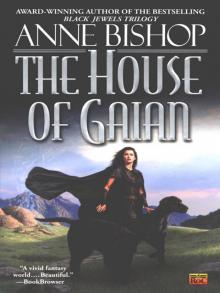 The House of Gaian
The House of Gaian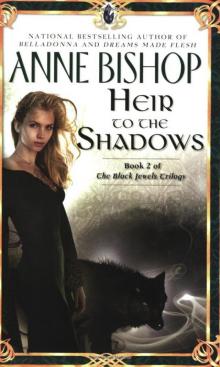 Heir to the Shadows
Heir to the Shadows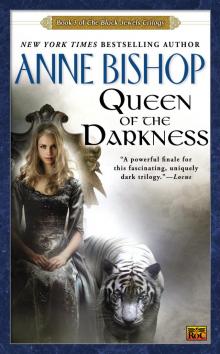 Queen of the Darkness
Queen of the Darkness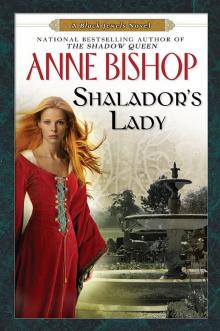 Shaladors Lady
Shaladors Lady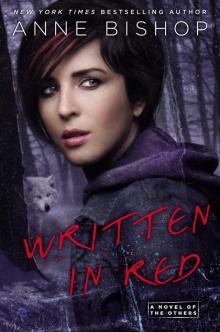 Written in Red
Written in Red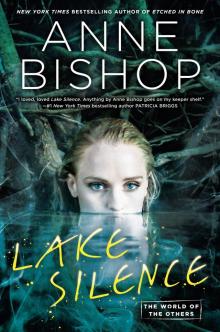 Lake Silence
Lake Silence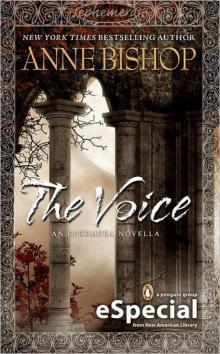 The Voice
The Voice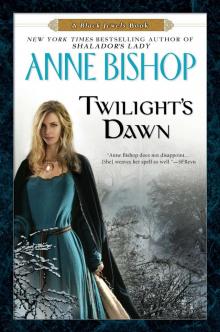 Twilights Dawn
Twilights Dawn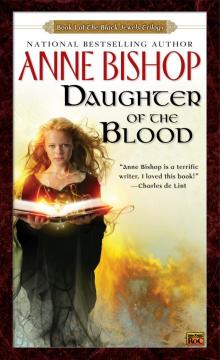 Daughter of the Blood
Daughter of the Blood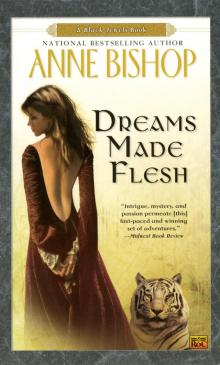 Dreams Made Flesh
Dreams Made Flesh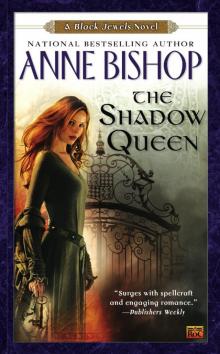 The Shadow Queen
The Shadow Queen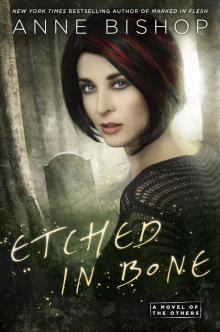 Etched in Bone
Etched in Bone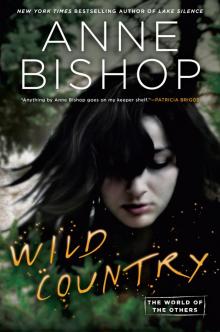 Wild Country
Wild Country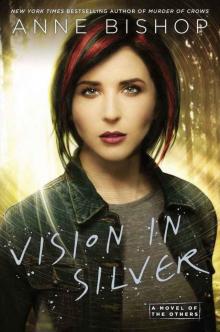 Vision in Silver
Vision in Silver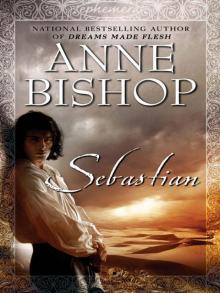 Sebastian
Sebastian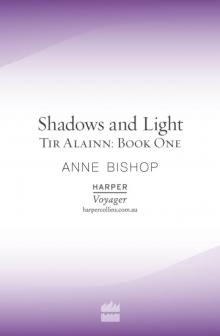 Shadows and Light
Shadows and Light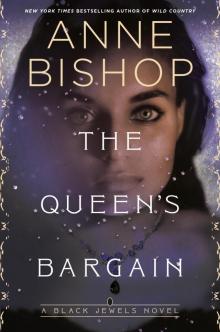 The Queen's Bargain
The Queen's Bargain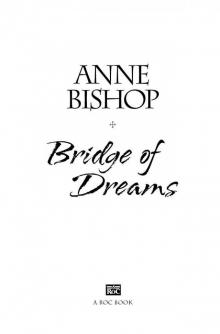 Bridge of Dreams
Bridge of Dreams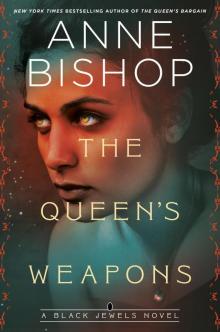 The Queen's Weapons
The Queen's Weapons Pillars of the World
Pillars of the World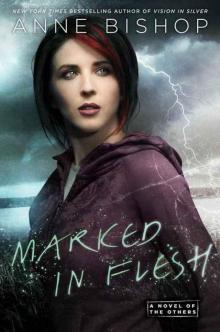 Marked in Flesh
Marked in Flesh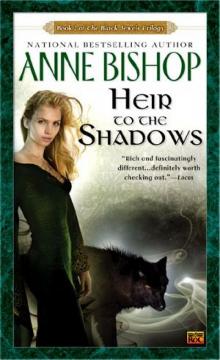 Heir to the Shadows dj-2
Heir to the Shadows dj-2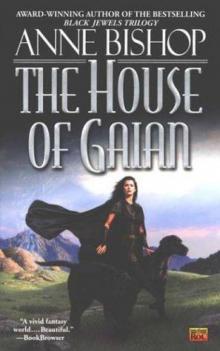 The House of Gaian ta-3
The House of Gaian ta-3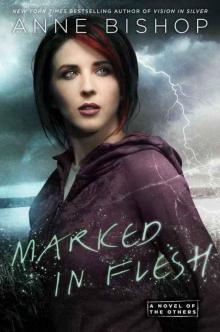 Marked In Flesh (The Others #4)
Marked In Flesh (The Others #4)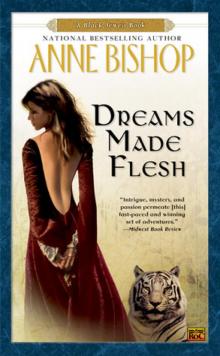 Dreams Made Flesh bj-5
Dreams Made Flesh bj-5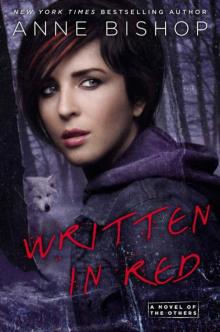 Written In Red: A Novel of the Others
Written In Red: A Novel of the Others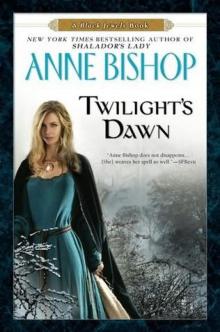 Twilight's Dawn dj-9
Twilight's Dawn dj-9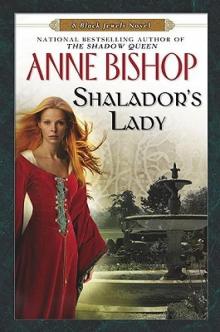 Shalador's Lady bj-8
Shalador's Lady bj-8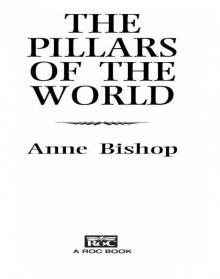 The Pillars of the World
The Pillars of the World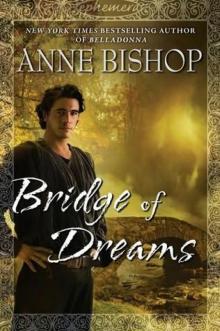 Bridge of Dreams e-3
Bridge of Dreams e-3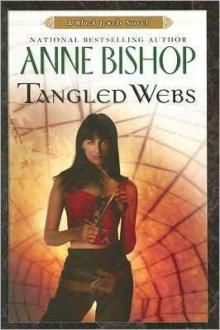 Tangled Webs bj-6
Tangled Webs bj-6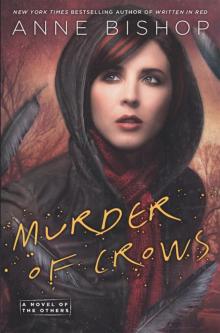 Murder of Crows: A Novel of the Others
Murder of Crows: A Novel of the Others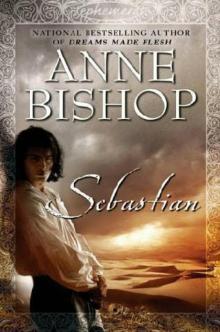 Sebastian e-1
Sebastian e-1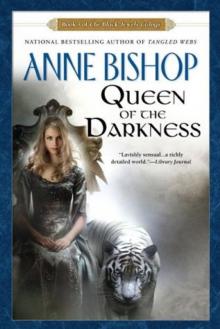 Queen of the Darkness bj-3
Queen of the Darkness bj-3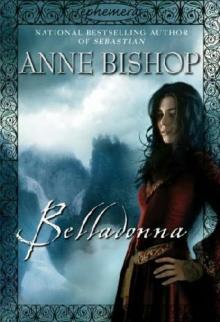 Belladonna e-2
Belladonna e-2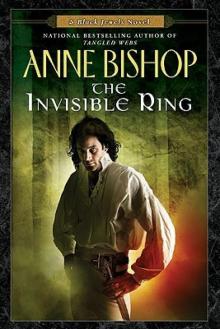 The Invisible Ring bj-4
The Invisible Ring bj-4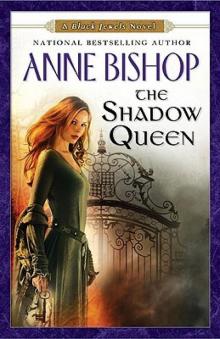 The Shadow Queen bj-7
The Shadow Queen bj-7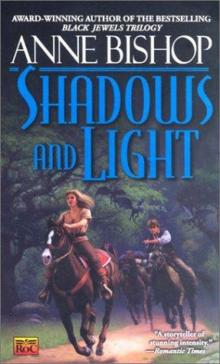 Shadows and Light ta-2
Shadows and Light ta-2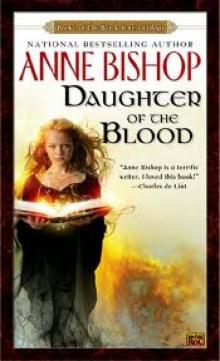 Daughter of the Blood bj-1
Daughter of the Blood bj-1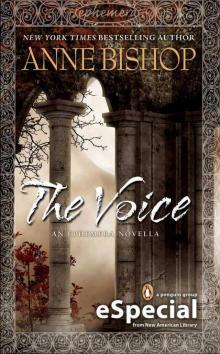 The Voice: An Ephemera Novella(An eSpecial from Roc)
The Voice: An Ephemera Novella(An eSpecial from Roc)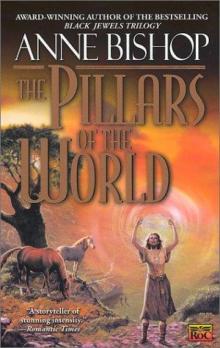 The Pillars of the World ta-1
The Pillars of the World ta-1